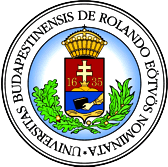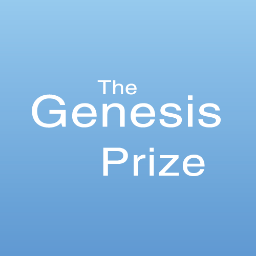Laureates [1]
| Year | Name | Nationality | Citation |
|---|---|---|---|
| 1978 | George F. Sprague | for his outstanding research on the genetic amelioration of maize for human welfare. | |
| John Charles Walker | for his research in plant pathology, developing of disease-resistant varieties of major food plants. | ||
| 1979 | Jay L. Lush | for his outstanding and pioneering contributions to the application of genetics to livestock improvement; | |
| Kenneth Blaxter | for his fundamental contributions to the science and practice of ruminant nutrition and livestock production. | ||
| 1980 | Karl Maramorosch | for his pioneering and wide-ranging studies on interactions between insects and disease agents in plants. | |
| 1981 | John O. Almquist | for his significant contributions to the application of artificial insemination to livestock improvement. | |
| Henry A. Lardy | for his pioneering research on storage and preservation of spermatozoa thus enabling artificial insemination to become a universal practice. | ||
| Glenn W. Salisbury | for his outstanding achievements in basic and applied research on artificial insemination. | ||
| 1982 | Wendell L. Roelofs | for his fundamental chemical and biological research on pheromones and their practical use in insect control. | |
| 1983/4 | Don Kirkham Cornelis T. de Wit | for their innovative contributions to the quantitative understanding of soil-water and other environmental interactions influencing crop growth and yield. | |
| 1984/5 | Robert H. Burris | for his pioneering fundamental research on the mechanisms of biological nitrogen fixation and its application in crop production. | |
| 1986 | Ralph Riley Ernest R. Sears | for their fundamental research in cytogenetics of wheat, providing the basis for genetic improvement of cereal grains. | |
| 1987 | Theodor O. Diener | for his discovery and pioneering fundamental research on viroids and his applied work on viroid detection in crops. | |
| 1988 | Charles Thibault Ernest John Christopher Polge | for pioneering work in reproductive physiology including cell preservation, fertilization processes, egg biology and embryo manipulations for domestic animal improvement. | |
| 1989 | Peter M. Biggs Michael Elliott | for distinguished contributions to basic science and its successful translation into practice in the fields of animal health and crop protection. | |
| 1990 | Jozef Stefaan Schell | for his pioneering work in genetic transformation of plants, thereby opening up new horizons in basic plant science and breeding. | |
| 1991 | Shang Fa Yang | for his remarkable contributions to the understanding of the mechanism of biosynthesis, mode of action and applications of the plant hormone, Ethylene. | |
| 1992 | No award | ||
| 1993 | John E. Casida | for his pioneering studies on the mode of action of insecticides, design of safer pesticides and contributions to the understanding of nerve and muscle function in insects. | |
| 1994/5 | Carl B. Huffaker Perry Adkisson | for their contributions to the development and implementation of environmentally beneficial integrated pest management systems for the protection of agricultural crops. | |
| 1995/6 | Morris Schnitzer Frank J. Stevenson | for their pioneering contributions to our understanding of the chemistry of soil organic matter and its application to agriculture. | |
| 1996/7 | Neal L. First | for his pioneering research in the reproductive biology of livestock. | |
| 1998 | Ilan Chet Baldur R. Stefansson | for their contributions to the environmentally safe development of world agriculture through innovative approaches in breeding and bio-control. | |
| 1999 | No award | ||
| 2000 | Gurdev Khush | for his extraordinary contribution to theoretical research in plant genetics, evolution and breeding especially of rice, with regard to food production and alleviation of hunger. | |
| 2001 | Roger N. Beachy James E. Womack | for the use of recombinant DNA technology, to revolutionize plant and animal sciences, paving the way for applications to neighboring fields. | |
| 2002/3 | R. Michael Roberts Fuller W. Bazer | for discoveries of Interferon tau and other pregnancy-associated proteins, which clarified the biological mystery of signaling between embryo and mother to maintain pregnancy, with profound effects on the efficiency of animal production systems, as well as human health and well-being. | |
| 2004 | Yuan Longping Steven D. Tanksley | for innovative development of hybrid rice and discovery of the genetic basis of heterosis in this important food staple. | |
| 2005 | No award | ||
| 2006/7 | Ronald L. Phillips Michel A. J. Georges | for groundbreaking discoveries in genetics and genomics, laying the foundations for improvements in crop and livestock breeding, and sparking important advances in plant and animal sciences. | |
| 2008 | John A. Pickett James H. Tumlinson W. Joe Lewis | for their remarkable discoveries of mechanisms governing plant-insect and plant-plant interactions. Their scientific contributions on chemical ecology have fostered the development of integrated pest management and significantly advanced agricultural sustainability. | |
| 2009 | No award | ||
| 2010 | David Baulcombe | for his pioneering discovery of gene regulation by small inhibitory RNA molecules in plants, which is of profound importance not only for agriculture, but also for biology as a whole, including the field of medicine. | |
| 2011 | Harris A. Lewin | for highly significant discoveries, that contribute to both fundamental and practical aspects of animal agriculture. | |
| R. James Cook | for seminal discoveries in plant pathology and soil microbiology that impact crop productivity and disease management. | ||
| 2012 | No award | ||
| 2013 | Joachim Messing | for innovations in recombinant DNA cloning, which revolutionized agriculture, and for deciphering the genetic codes of crop plants. | |
| Jared Diamond | for pioneering theories of crop domestication, the rise of agriculture and its influences on the development and demise of human societies, and its impact on the ecology of the environment. | ||
| 2014 | Jorge Dubcovsky Leif Andersson | for their break-through contribution to the study of plants and animals, through the use of cutting-edge genomic technologies. | |
| 2015 | Linda J. Saif | for her discoveries of novel enteric and respiratory viruses of food animals and humans which have led to her extensive contributions of fundamental knowledge of the gut-mammary immunologic axis and have provided new ways to design vaccines and vaccination strategies. | |
| 2016 | Trudy Mackay | for her work in quantitative genetics, which studies the interaction between genes, traits and environmental effects. | |
| 2017 | No award | ||
| 2018 | Gene E. Robinson | for leading the genomics revolution in the organismal and population biology of the honeybee. | |
| 2019 | David Zilberman | for incorporating biophysical features of agroeconomic systems to develop economic models and econometric decision-making frameworks to answer fundamental agricultural economic and policy questions in several important areas. [2] | |
| 2020 | Caroline Dean | for pioneering discoveries in flowering time control and epigenetic basis of vernalization. [3] | |
| 2021 | No award | ||
| 2022 | Pamela C. Ronald | for pioneering work on disease resistance and environmental stress tolerance in rice. [4] | |
| 2023 | Martinus Theodore van Genuchten | for his groundbreaking work in understanding water flow and predicting contaminant transport in soils. [5] |









